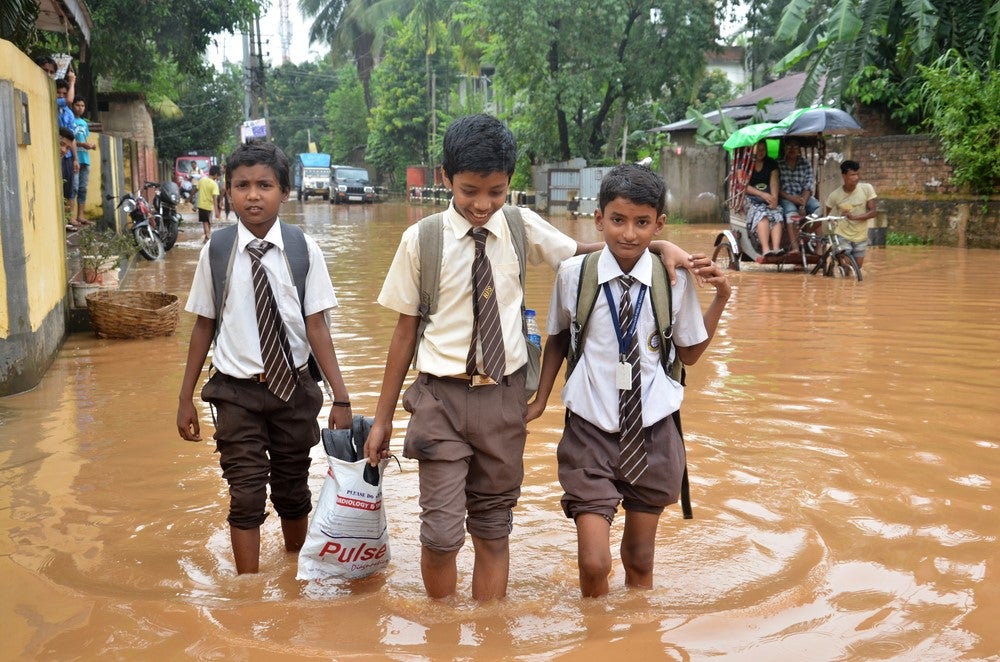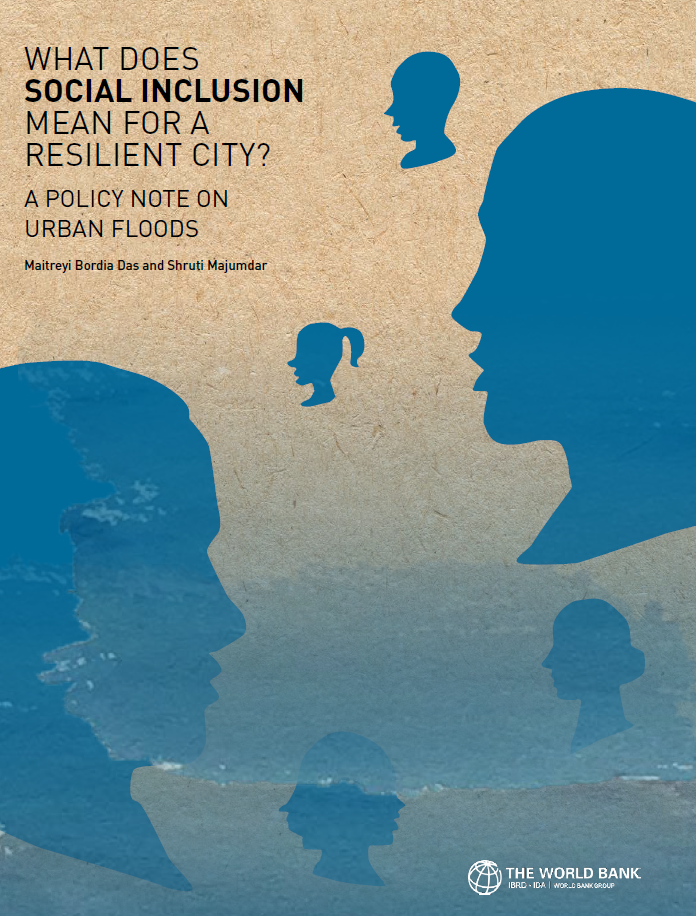 India David Talukdar Shutterstock
India David Talukdar Shutterstock
I have Odisha on my mind. Cyclone Fani has devastated one of my favorite states in India. But before Fani it was Idai and Kenneth. And the people of Beira in Mozambique are reeling. All this in a span of just a few weeks. Each of these disasters has flooded cities, towns, villages, and hamlets. They seem to be under climatic siege.
But there are important differences between floods in villages and those in cities, hence the focused attention to urban floods. In fact, the first time I really understood what urban floods meant for city residents was when I worked for the government of Maharashtra, and low-lying areas in Mumbai would get flooded every monsoon. Since then I have witnessed innumerable cities being inundated with filthy water. These are chronic floods, often resulting from clogged drains, bad management of solid waste, and dated infrastructure, among other things.
The Fourth World Reconstruction Conference (WRC4) is being held in Geneva next week, and I am encouraged by its theme – Inclusion for Resilient Recovery. Because some individuals and groups are worse affected by urban floods than are others. Yes, people who are income poor are of course at greatest risk, but there is more to exclusion than that.
Excluded groups in cities across the world comprise, inter alia, migrant workers, residents of informal settlements, the elderly, persons with disabilities, and those who work in trades and jobs that are particularly susceptible to disruption during natural hazards, such as street vendors or waste pickers. Plus, floods, like other shocks, affect men and women differently. Also, the response to floods can exacerbate existing forms of social exclusion – for instance, people of a specific ethnicity, race, caste, or place of origin may be left out of the evacuation or relief process.
We just released a short policy note on what social inclusion means for city residence, while focusing on urban floods. Here are our takeaways:
First, municipal governance and capacity are necessary preconditions for city resilience. The causes of urban floods need to be addressed upstream. In other words, mitigation is in some cases even more important than adaptation. For example, cities must ensure that solid-waste management is well-organized, clear mandates exist for service delivery, and good regulations are in place and are enforced effectively and transparently. They must additionally address the distortions in land and housing markets.

Second, and intrinsic to overall municipal governance, lasting city resilience will come from city governments, service providers, and the private sector being accountable to city residents. This observation follows the World Development Report 2004, which emphasized the importance of at least three actions: the voice of residents being heard through structured mechanisms, of feedback loops between providers and residents, and of ensuring systematic information flows between state and non-state actors. As a corollary, city governments should view everyday, community-level adaptation as integral to the city’s mitigation and adaptation efforts, instead of viewing the former as small, local, parallel, and separate responses.
Third, it is the abiding responsibility of city governments to know who is likely to be left out of efforts towards city resilience, through which channels, and in which ways. The premise of the World Bank’s social inclusion framework is to ask the right questions for the best possible interventions. The Social Inclusion Assessment Tool (SiAT) provides four simple guiding questions for ex-ante analysis, both in response to catastrophic events (as a part of the post-disaster needs assessment), and more importantly, during times of stability, to help plan for both chronic and severe flooding.
Finally, read this blog by my colleagues in the South Asia region of the World Bank, as they talk about a pilot initiative for project-specific action plans for social inclusion in disaster risk management.
READ MORE:
- Download: What Does Social Inclusion Mean for a Resilient City? A Policy Note on Urban Floods
- Report: Inclusion Matters: The Foundation for Shared Prosperity
- Blog post: Inclusive resilience: Are we building resilience for all?
- Blog post: Leaving no one behind – achieving disability-inclusive disaster risk management
- Blog post: Integrated urban flood risk management: Learning from the Japanese experience
- Topic: Social Inclusion
- Topic: Disaster Risk Management
- Subscribe to our Sustainable Communities newsletter
- Follow @WBG_Cities on Twitter



Join the Conversation